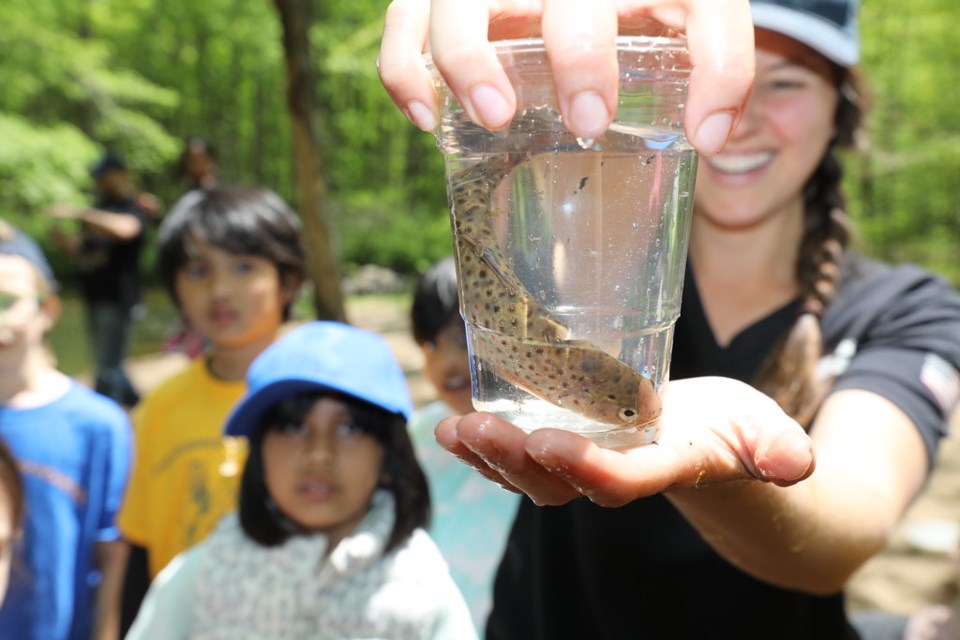Twenty-five second grade students from PS 179, located in Kensington, Brooklyn, have released juvenile trout that the students raised in their classrooms since October of last year. Nearly 20 fingerlings were released into the Cross River where it passes through the Ward Pound Ridge Reservation in Westchester County. The students were joined by the New York City Department of Environmental Protection (DEP), Trout Unlimited and the Watershed Agricultural Council.
Since 2002, DEP and Trout Unlimited, a national grassroots non-profit organization whose mission is to conserve, protect, and restore North America’s cold-water fisheries and their watersheds, have worked together to educate students. Students from New York City and upstate communities have learned about the importance of protecting our shared water resources through the Trout in the Classroom program.
The conservation-oriented environmental education program teaches young New Yorkers, ranging from pre-K to grade 12, about the connections between trout, the New York City water supply system, water quality, and students from both sides of the City ’s water tunnels.
In October, more than 130 classroom teachers joined the Trout in the Classroom Program’s Fall Teacher Conference and received trout eggs from the New York State Department of Environmental Conservation. Thousands of students from schools in New York City, as well as the City ’s upstate watersheds, incubated the trout eggs in their classrooms and raised them into juvenile trout, which are also called fingerlings.
This hands-on, eight-month long program culminates with students taking part in designated field days between March and June during which they release the fingerlings into New York City watershed streams. During these trout release field days, students experience firsthand a watershed stream and forest, participate in nature hikes and macroinvertebrate studies, and sing “Happy Free Day” to their beloved fingerlings.




